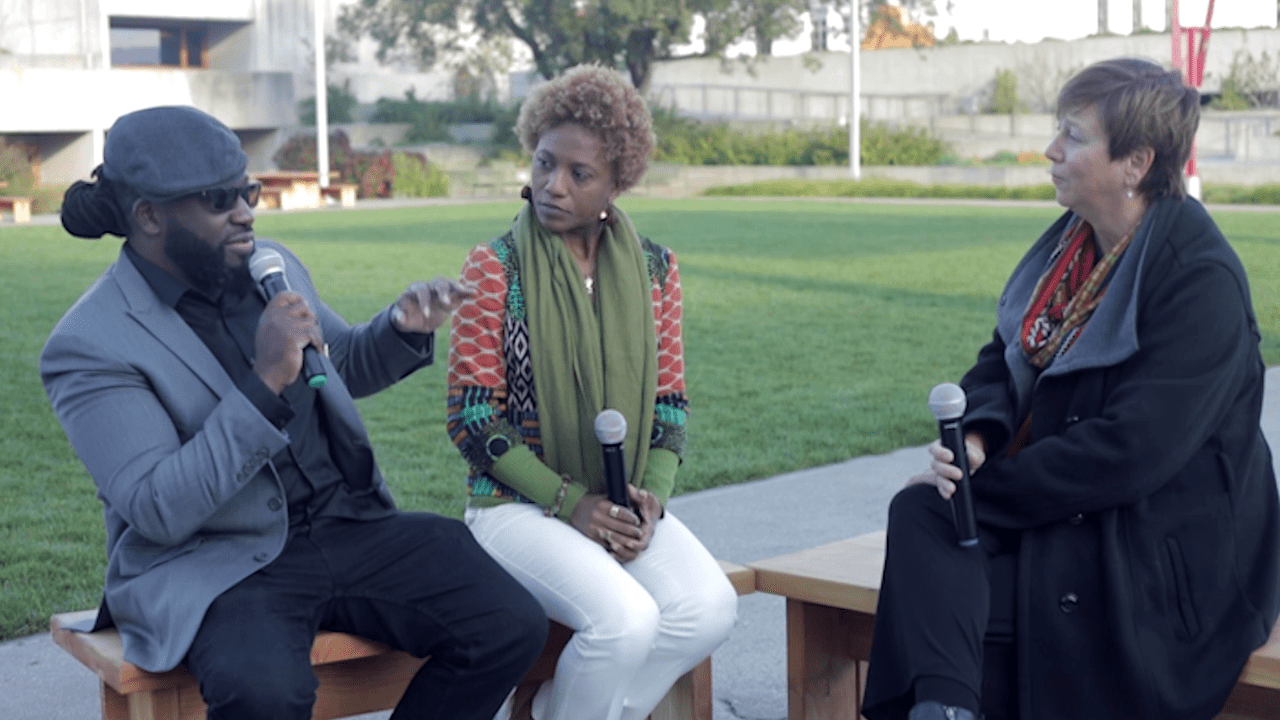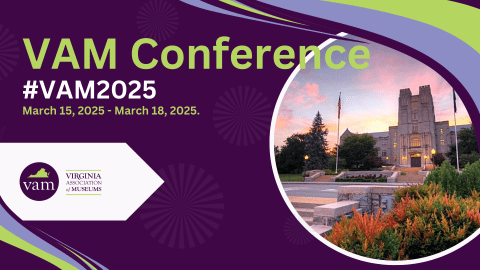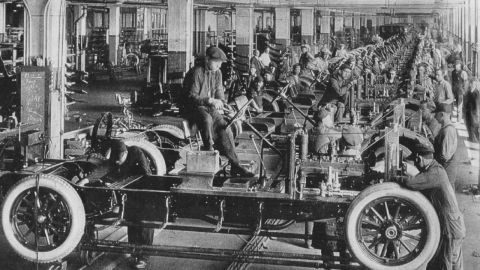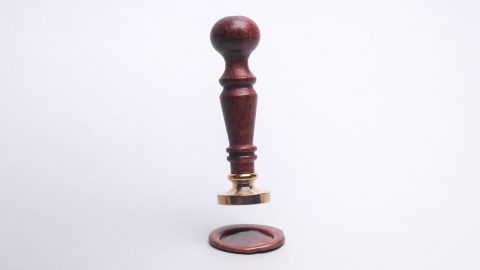
At the Oakland Museum of California (OMCA), diversity, equity, inclusion, access, and anti-racism are commitments that have long been a part of our DNA, both internally and in our work with our community, partners, and other cultural institutions. Over the decades of our existence, we’ve made great strides in these commitments, but we also recognize that they exist on a continuum, and much work remains. In that light, we’ve recently taken our work a step further, collaborating across departments to identify more concrete ways to build equity into our own processes, including new ways of working together as individuals and colleagues moving this organization forward.
OMCA’s commitment to equity began in its founding as the “museum of the people.” It was born in 1969 in the shadow of racial division and protest, amid demonstrations to free Huey Newton, founder of the Black Panther Party, who was on trial across the street from the museum at the Alameda County Courthouse.
Our focus on equity is compelled not only by this history but also by our location in one of the most diverse cities in the country, defined by a history of social justice and activism. Since our founding, we have collaborated with advisory councils and volunteer groups to connect to the communities of Oakland. We have been committed to presenting the multicultural stories of the state, and even more recently, specifically focusing on the untold and undertold stories of California.
Over the past decade, we have worked to live up to these foundational values by diversifying our board, staff, and our audience. We adapted our recruitment process for staff to reduce bias and promote equity, as well as to provide greater access to learning and development opportunities for all. We have also begun to measure the impact we are having on the well-being of our community beyond traditional measures of attendance or financial benchmarks.
Despite these strides, our external research—and, even more importantly, the internal reckoning we’ve confronted—have revealed we have much further to go. For that reason, in 2020 we convened more than fifty staff members from every level of the organization to examine the museum’s culture and structure and put forth recommendations on becoming a more anti-racist institution. Tasked with this mandate, the participating staff formed into self-designated and self-directed Anti-Racist Design Teams (ADTs) and met intensively over a three-month process that assessed various aspects of the museum’s programming, working processes, and community engagement.
By the end of the summer of 2020, the ADT teams presented six high-level priorities supported by some 160 recommendations for short-term actions and long-term strategies, first to the full staff, then to the Executive Team, then to the Executive Committee of the Board of Trustees, and finally to the Board of Trustees.
In January 2021, OMCA undertook a major organizational redesign which included a restructuring of its staff after the final impacts of COVID, and used these recommendations to center anti-racism as a core value and principle in the process. A few of the changes that have taken place since the redesign was implemented in the spring of 2021 include:
- A nine-dollar-an-hour pay increase for OMCA’s lowest-paid employees, taking the base level of pay to $26.26 per hour
- A staff-led investment task force created to identify themes for OMCA’s investment portfolio, working in collaboration with a board task force and Board Investment Committee
- A newly created cross-institution Safety Team, which has implemented a set of principles and commitments to reopening through the lens of DEAI, with equity and safety at the forefront
- Staff-led wellness offerings, including meditation and journaling, and healing circles led by a trained transformative justice facilitator
- The endorsement of a Statement of Commitment that articulates the Board of Trustees’ role in the museum’s journey to becoming more anti-racist and equitable
- Revised board roles and responsibilities, including individual and collective commitments to principles of equity and anti-racism
- Nominating eight new board members, as part of our participation in AAM’s Facing Change Initiative, bringing total board composition to 50 percent BIPOC representation
The museum is currently in the midst of implementing its new structure, creating new processes and cross-functional teams to move the organization forward. OMCA remains committed to this journey and knows that the work is never done; we will continue to look inward and examine how we can evolve as individuals and colleagues collectively and to share our learnings with the broader museum field.
To reflect on this process and what the organization has been working on over the last few years, OMCA’s Director & CEO Lori Fogarty recently sat down for a conversation with colleagues Johwell Saint-Cilien and L. Autumn King to discuss what the institution has learned, and how OMCA continues to move this work forward. Watch the video below to hear their reflections.








